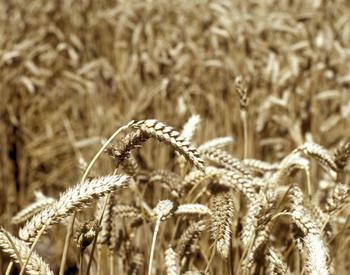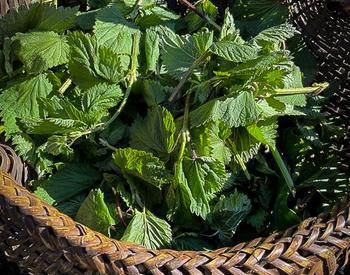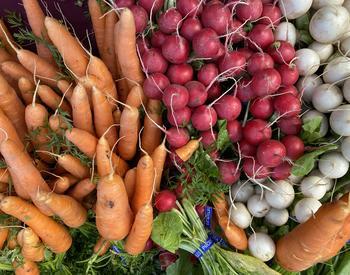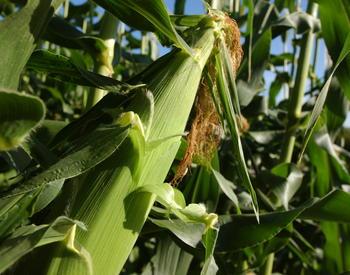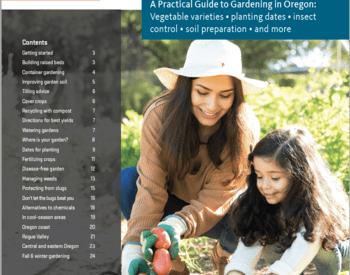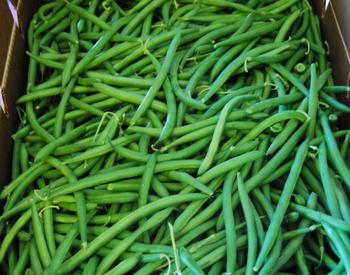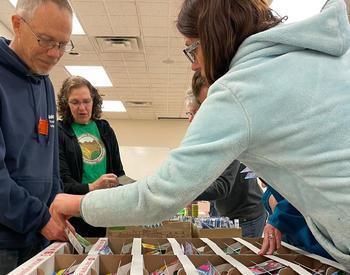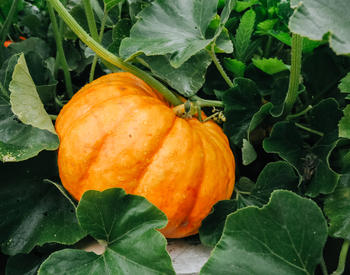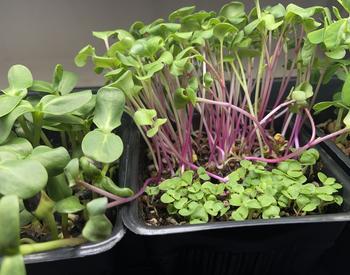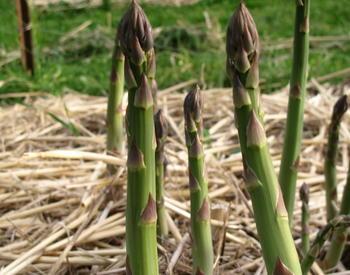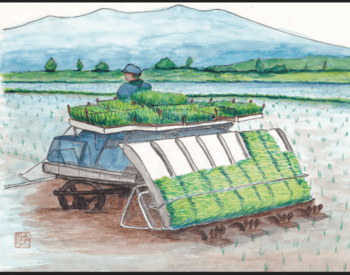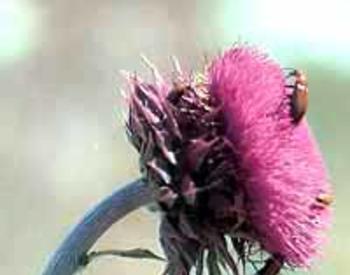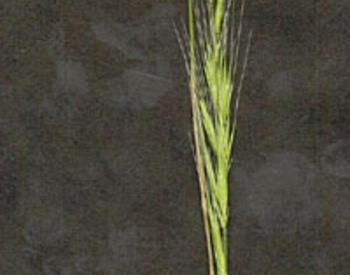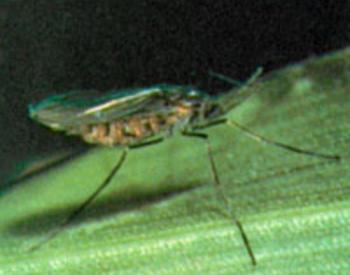AURORA, Ore. – A spike in demand for Asian herbs for medicinal purposes is driving research by Oregon State University Extension Service to determine which herbs grow best in the Willamette Valley.
Seeking to add high-value crops for farmers, Kristine Buckland, Extension vegetable and specialty seed crop specialist and assistant professor in the OSU College of Agricultural Sciences, is leading a collaboration to conduct field trials to determine the success of several high-demand herbs and vegetables. Partners include Willamette Valley growers and the Oregon College of Oriental Medicine in Portland.
The first trial of tulsi (holy basil) was planted at the OSU North Willamette Research and Extension Center (NWREC) in 2021 and repeated by two farmers in the northern part of the Willamette Valley. Herbs there also included ashwagandha and red sage (Salvia miltiorrhiza).
Hoping to grow her business into the possibly lucrative market, Gentiana Loeffler, owner of Root Medicine Farm just outside Portland, joined Buckland’s 2021 trial. She grew two plants, tulsi and red sage (Salvia miltiorrhiza), which are both used in holistic medicine. Despite a wet spring and hot summer, she said her trial went well.
“Was it successful? Yes. I would definitely say ‘yes,’” said Loeffler, who apprenticed at the Chinese Medicinal Herb Farm in Petaluma, Calif., “The tulsi did really well. It transplanted well, grew a healthy stand and I got three harvests. It dried great, looked good and had that really strong, vital medicinal smell to it.”
Red sage, which is harvested for its root, is not harvested for three or four years in order to grow the roots large and healthy. Ten plants will be dug this winter to see how the crop is progressing, but Loeffler said the plants look great and early inspection showed healthy young roots.
Interest rises in Portland metro area
The COVID-19 pandemic added to an increased interest in Asian medicinal herbs, but a steady increase in Asian, Hawaiian and Pacific Islander populations in the Portland metro area also contributes to the rise in demand. Between 2006-2016, these populations grew by 40.6% while the general population increased only 11.5%, according to Oregon’s Office of Economic Analysis.
“The Portland metro area hosts a thriving Asian-Pacific Islander community with market options that rely almost entirely on imported herbs and produce,” Buckland said. “First- and second-generation immigrants continue to seek out fresh, organically grown Asian herbs and produce from local markets. Many of these high-value crops can be grown locally with the development of farm-to-market connections.”
According to Bonnie Sweetland, director of herbal medicinary operations at the Oregon College of Oriental Medicine, 99% of the Asian herbs sold in their medicinary are expensive because they are grown and imported from China. The pandemic rapidly increased consumer demand for natural products supporting respiratory function. Sales of some of these herbs have jumped more than 20% in a single year, Buckland said. Even before the pandemic, the growth of the medicinal herb market was estimated at 10% annually.
Buckland, who is the lead author of the OSU Extension publication “Medicinal Herb Production in the Pacific Northwest,” is planning a community survey to assess needs for medicinal herbs and Asian vegetables. Results will be announced this spring.
“It should give us perspective on what people are buying,” Buckland said. “We need to know what they want to buy, what’s available and if they prefer local, organic or just care about it being fresh. So far, the quality of the local product is the driving factor and so is organic.”
'I see a good market'
Response from possible buyers has been positive. Loeffler is encouraged by her contact with possible outlets. She’s in conversations with the Oregon College of Oriental Medicine and the National University of Natural Medicine, also in Portland, about selling her herbs. She is also working with Spring Wind Herbs in San Leandro, Calif.
“I see a good market,” Loeffler said. “Some of that is based on faith but mostly on conversations with folks who are really passionate about a domestic herb market. There’s definitely interest and room for growth.”
This year Buckland will also include traditional Asian vegetables like mizuna, Asian radish and gai lan in research plots at NWREC. Sowing was put off a year because of weather so the vegetables will be planted this spring.
OSU Extension will provide seeds and starts to participating farmers for crops that fit best on their farms and may include bitter melon, Korean radish and Korean leeks. Those plants were chosen, Buckland said, because they are raised as annual crops and would likely be easily adopted into existing crop systems and marketable.
“The main focus is that we’re trying to give growers the knowledge and the tools they need to adopt new crops,” Buckland said. “The project is very grower-centered. These folks are the leaders. If we can get adoption on these farms that’s how we start teaching. Growers teach other growers and start transforming knowledge into profitable crops.”
Vegetables can be an important crop, too, especially those that are easily adaptable. But so far growers seem more interested in herbs. They are eager to try new things that could be money-making crops.
“A lot of growers are super interested in herb production,” Buckland said. “They are used to producing a wide range of crops so a new one is not a huge hurdle. If researchers and Extension can bring them knowledge that they are able to apply on their farms and connect them with markets, they’ll figure out the rest. We’ll let them run with it.”
The research is funded by two grants from the U.S Department of Agriculture-National Institute of Food and Agriculture (USDA-NIFA) and the Oregon Department of Agriculture Specialty Crop Block Grant Program. The study will extend into 2024.
